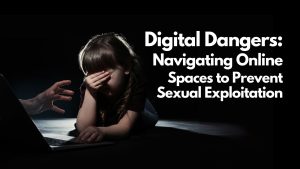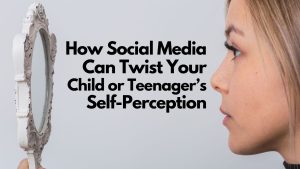If you find an app called Discord on your kid’s phone, you might be concerned. “”Discord? What’s Discord? I don’t want discord in my child’s life!”” It may not be the best name choice for discerning parents. So, what is Discord, and should you be concerned?
Discord is a free voice, video, and text chat app for teens and adults ages 13 and up. If your kid is a gamer, they are likely to have this app. It is intended for teens to chat about their games and create a talk-group when they are playing a coop game. Teens can access Discord via their PC, browser, or mobile phone. Once there, they can join a chat they’ve been invited to or they can create private servers and invite their friends to play and discuss games by voice, text or video. They can also message each other individually or in group chats with up to ten other friends.
Can my child be bullied or exposed to inappropriate content on Discord?
The answer is, “”Yes,”” but it is not any more problematic than other social media platforms. There are parental controls that will help you set up your child’s account so they are only chatting with friends and not strangers. All conversations are opt-in, so anyone not interested in chatting has a variety of tools at their disposal:
1. Block unwanted messages and friend requests
Follow these steps: User Settings -> Privacy & Safety → Turn off the “Allow direct messages from server members” option. You can go to this help article for more detailed steps.
In this same menu, under “Who can add you as a friend,” deselect “everyone” and “server members.”
2. Block inappropriate content
Discord has the ability to set an Explicit Content Filter that will automatically detect and delete images and uploads containing explicit and inappropriate content.
Follow these steps to turn this feature on:
User Settings -> Privacy & Safety → Check the “Keep Me Safe” box. Check out this help article for more details.
3. Talk to your child about your security concerns and set expectations
Have a conversation about your security concerns, mainly that you don’t want they chatting or sharing any information with strangers. This includes friends-of-friends they have never met.
Clearly define your expectations of “”safe use”” of this app, and the consequences of coloring outside the lines of those expectations; such as, removing the app from their device and possibly a loss of screens for a day or two.
References:
Parent’s Guide to Discord, blog.discordapp.com/parents-guide-to-discord-c77d91793e9c
Get educated
Social media and technology is a moving target. Parents must know w”hat is happening in their child’s digital world. Subscribe to Cyber Safety Cop’s free newsletter that will let you know when there is a new app or online issue parents need to know about.
Attend a Cyber Safety Parent Seminar near you. If you can’t find a seminar near you, learn how to host a seminar at your school or organization.
Get the companion guide to every device your child is using to connect to the internet and other people online – the step-by-step guide to making your family safe online, “Parenting in the Digital World.”




